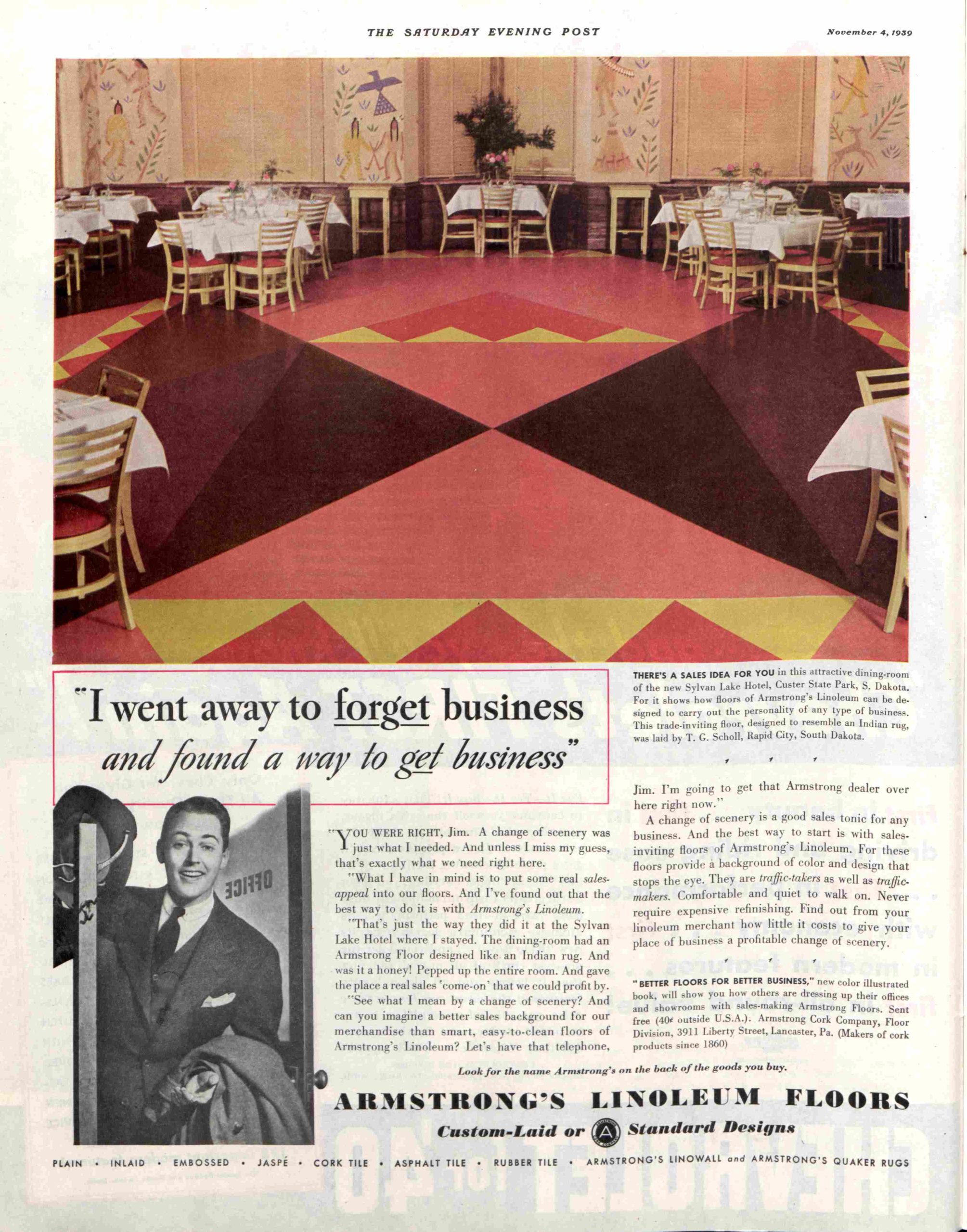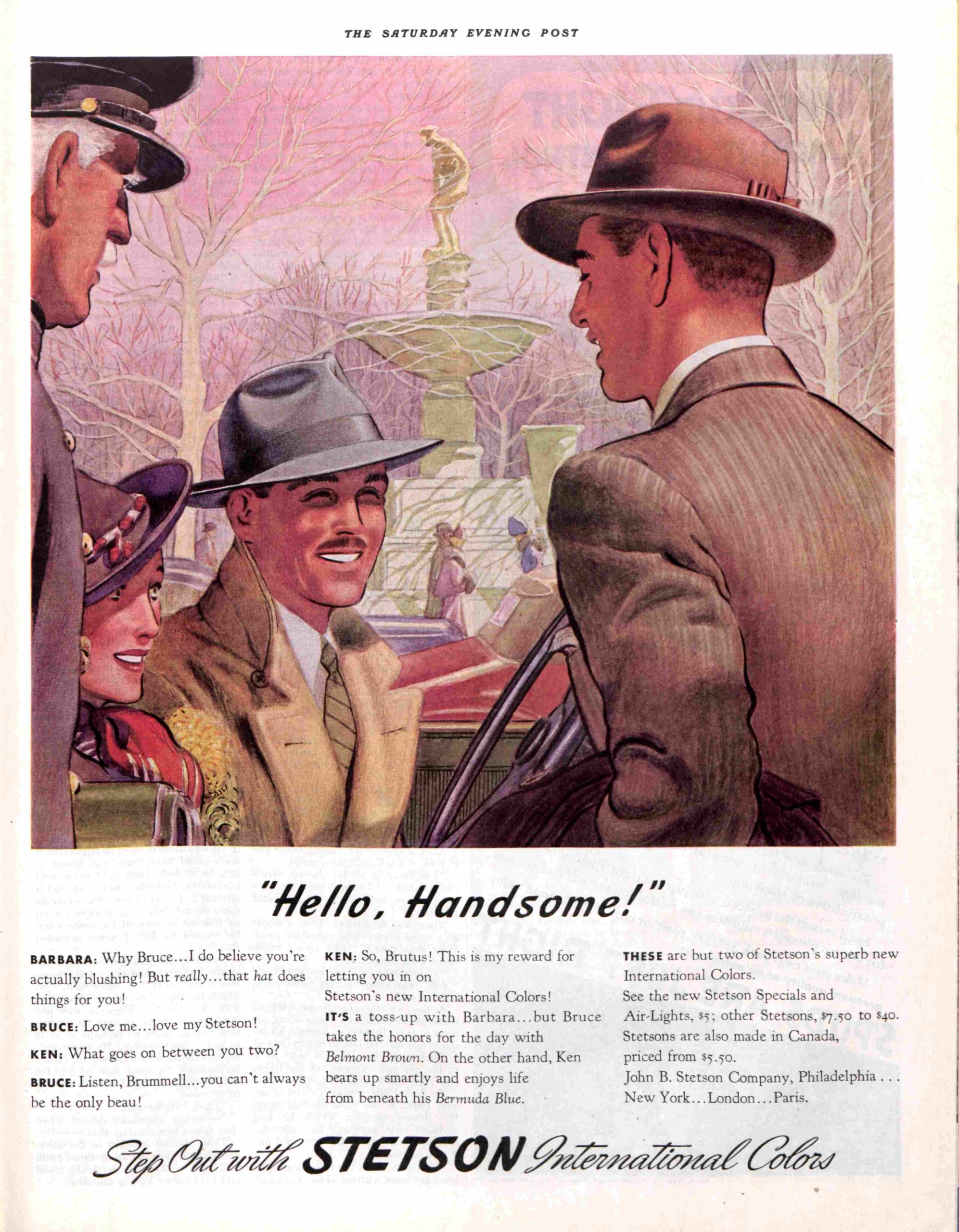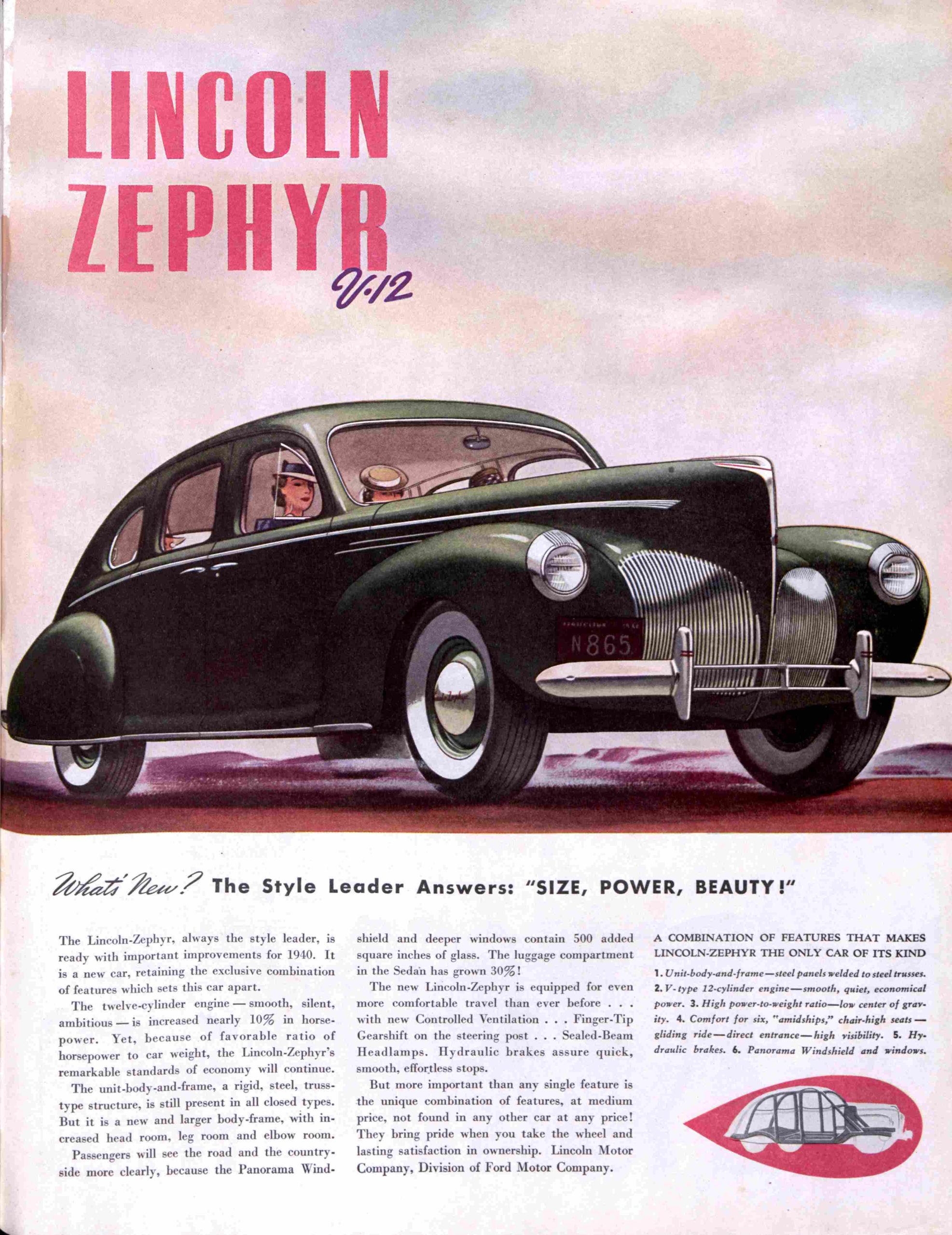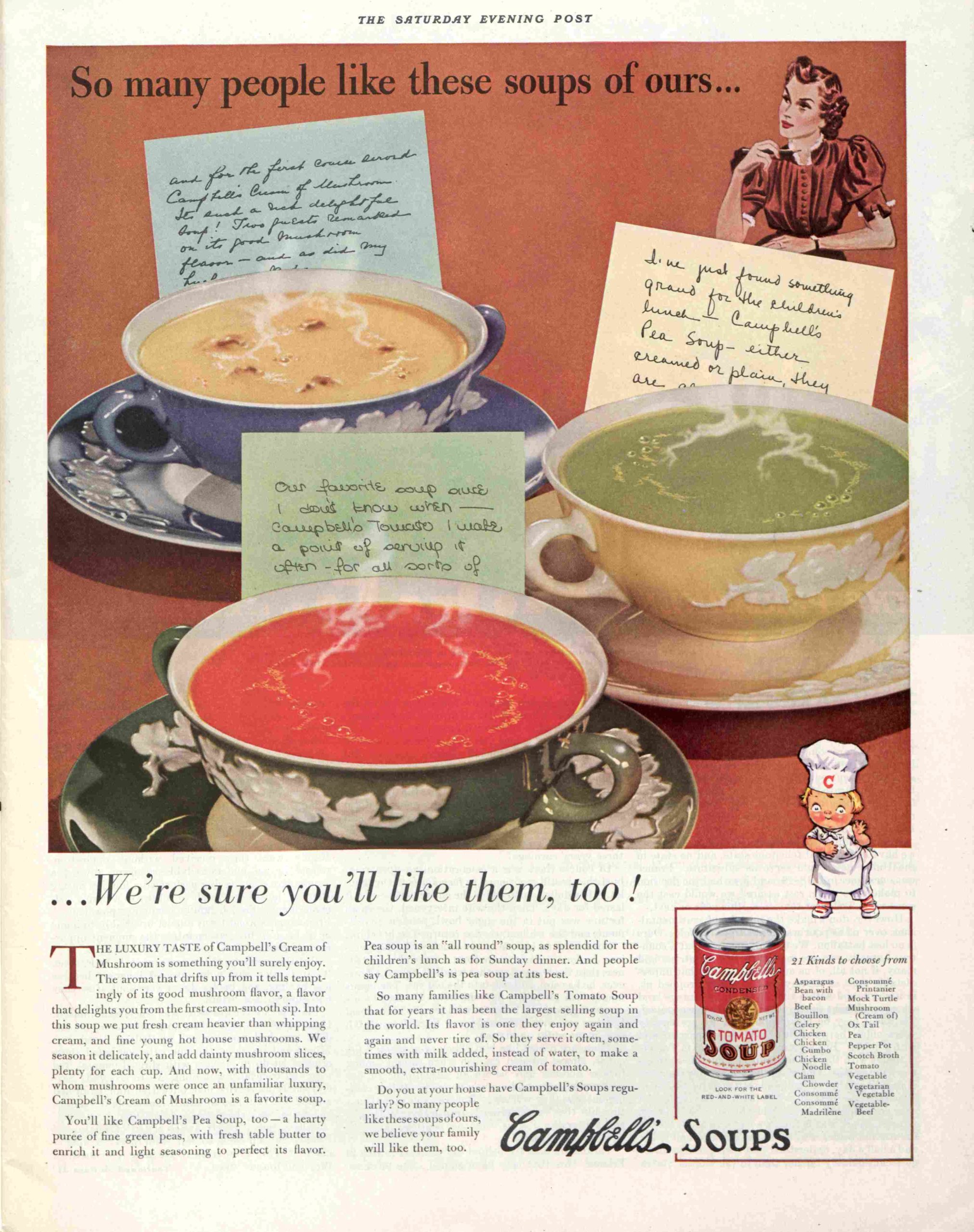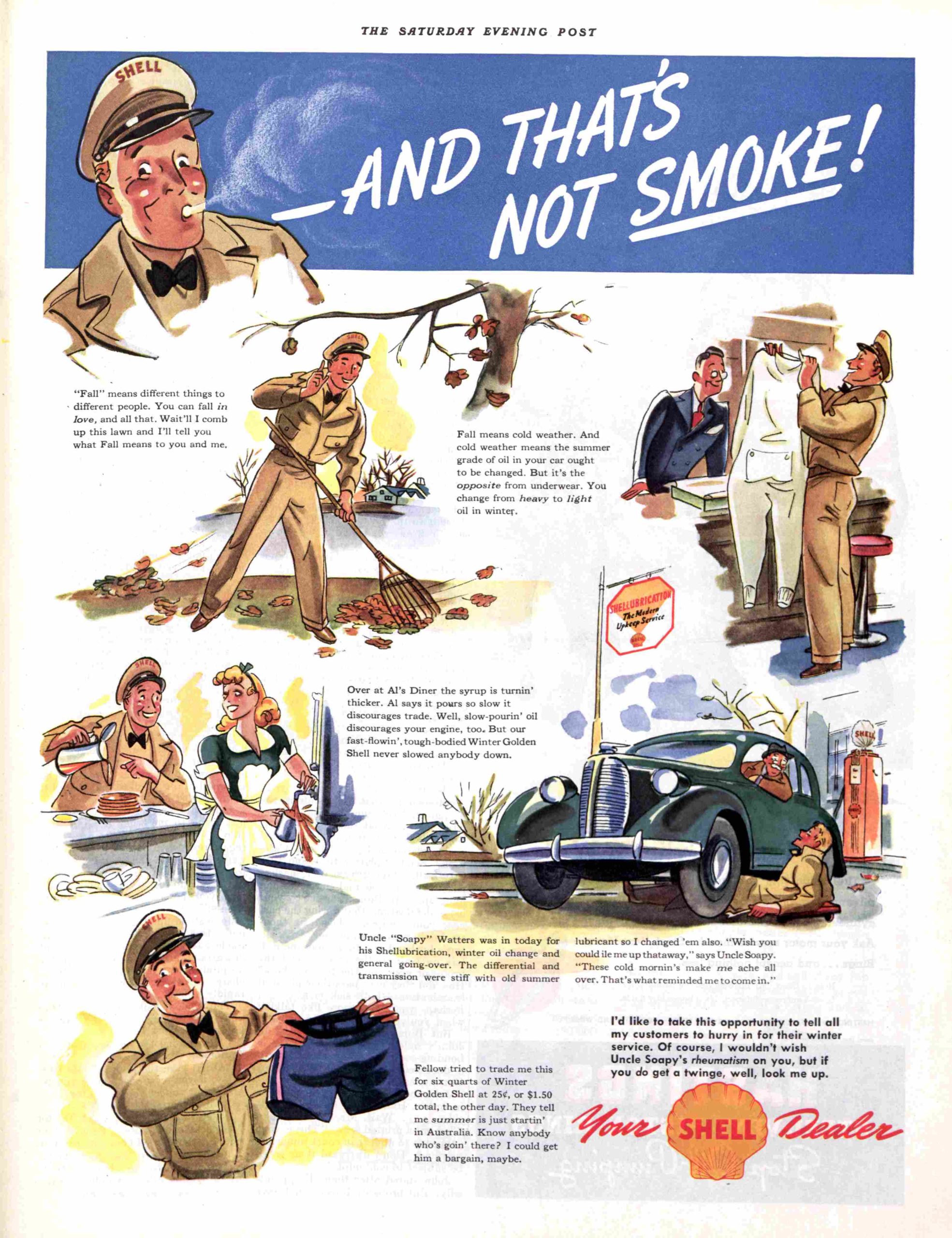100 Years Ago: A President Silences His Critics
Earlier this month, President Trump, angered over critical reporting by journalists, pondered via Twitter whether he should revoke their press credentials. This bitter feud between press and president has raised an old question: Does the president have the right to silence people who criticize him or his policies?
Congress debated that question 100 years ago and believed so strongly in such executive privilege that it passed the Espionage and Sedition Acts to stifle dissent in America.
President Woodrow Wilson expected criticism after he asked Congress to declare war on Germany, sending America into World War I. He had, after all, been elected on his record of keeping the U.S. out of the war. Now he’d committed the country to that contest, and he knew he’d need strong public support for the war effort. He would tolerate no criticism that might discourage military enlistment, the sale of war bonds, or cooperation with rationing programs. He needed loyal Americans — loyal, that is, to his plans.
But there were strong anti-war feelings among pacifists, socialists, and union organizers, as well as immigrants. At the beginning of the 20th century, there were eight million first- and second-generation Germans living in the U.S. Many retained a strong attachment to the land of their birth. Wilson believed they might dampen the war effort with pro-German sentiments, and he feared German agents hid among them, embedded at all levels of American society. German saboteurs had already destroyed a major munitions depot in New York Harbor.
Wilson proposed a bill to silence criticism of the war. The result was the Espionage Act, which became law on June 15, 1917, and prohibited anyone from aiding America’s enemies in wartime or interfering with the armed forces and its recruitment efforts. It also made it illegal to make false statements that disrupted military operations, promoted the enemy’s success, or led to insubordination or disloyalty.
But the Espionage Act didn’t end the dissent. A Montana rancher publicly called President Wilson “a Wall Street tool” and said he’d leave the country rather than go to war. He was tried under the Espionage Act but acquitted on appeal because he didn’t directly affect war efforts. In response, the U.S. attorney general called for a law to broaden the Act’s powers.
So Congress extended government control to affect speech and writing. The Sedition Act of 1918 made it a crime to use “disloyal, profane, scurrilous, or abusive language” about America’s government, its flag, or its armed forces. Making any statement that inspired contempt in others for the government or its institutions was also outlawed.
Theodore Roosevelt protested the law, saying it was “a proposal to make Americans subjects instead of citizens.”
But some legislators thought it didn’t go far enough to root out dissident thinking. A New Mexico congressman was disappointed the Act didn’t provide the death penalty. And an unsigned editorial in The Washington Post stated, “Enemy propaganda must be stopped, even if a few lynchings may occur.”
The Saturday Evening Post editors supported the Act. The government didn’t need a sedition law to protect itself, they said, but it had to show patriotic Americans it wouldn’t allow anyone to criticize their loyalty or the national cause. This explanation probably referred to the mobs of outraged citizens who had attacked and even lynched people suspected of disloyalty.
It was in the Post’s best interest to support the law at the time. Had the editors been critical instead, the Sedition Act would have empowered the postmaster general to block all delivery of the Post, as he had with other publications.
Two thousand cases were tried under the Sedition Act, half of which resulted in conviction. It was invoked most often in Western states, where it was used frequently to prosecute members of what was considered a radical workers’ group, the Industrial Workers of the World (IWW).
The Sedition Act was repealed in 1920 and the offenders were pardoned, though well after the war had ended. The U.S. attorney responsible for the pardons praised the government for detaining a number of dissidents in prison after the war “to set an example of firmness that will go down in history as a warning to those who in the future might be inclined to harbinger and harass the government.”
As much as the president would enjoy being able to legally silence his detractors, their public criticism is still protected by law.
Featured image: Shutterstock
How to Be Neutral
Why does America find it so difficult to remain neutral?
Why do we seem impelled to take sides and get involved in global politics?
A century ago, as the U.S. watched Europe sinking in the First World War, President Woodrow Wilson asked Americans to be “neutral in fact, as well as in name. … We must be impartial in thought, as well as action, must put a curb upon our sentiments, as well as upon every transaction that might be construed as a preference.”
But when war returned to Europe 25 years later, President Roosevelt declared, “This Nation will remain a neutral nation, but I cannot ask that every American remain neutral in thought as well. Even a neutral has a right to take account of facts. Even a neutral cannot be asked to close his mind or his conscience.”
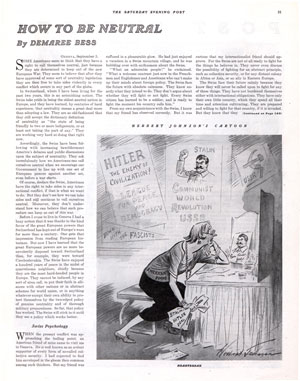
This was not neutrality, wrote Post contributor Demaree Bess, and he knew what he was talking about. For the previous two years he had been living in Switzerland. The small European republic had maintained its freedom for over a century while observing rigorous neutrality, which he defined as “the state of being friendly to two or more belligerents, or at least not taking the part of any.”
The Swiss, he wrote, couldn’t understand how Americans thought they were being neutral when they were encouraging their government “to line up with one set of European powers against another set, even before a war starts.” According to Bess, Americans thought simply declaring neutrality gave them the right “to take sides violently in every conflict which occurs in any part of the globe.”
The Swiss would stay out of the war, Bess wrote, because they would not fight for the things they believe in. The only cause for which the Swiss would take up weapons — which they were ready and prepared to do — was an invasion of their homeland. “They never even discuss the possibility of fighting for an abstract principle, such as collective security, or for any distant colony … or an ally in Eastern Europe. … They have only their own little country, which they spend all their time and attention cultivating. They are prepared and willing to fight for that country, if it is invaded.”
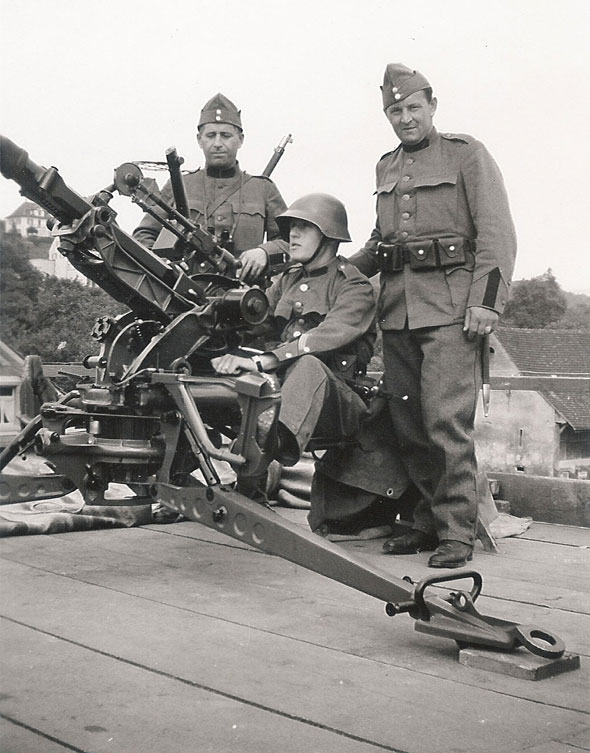
Between 1936 and 1939, the Swiss had spent $230 million to reorganize defenses. They modernized weaponry, especially antiaircraft defense and frontier fortifications. The government also increased the amount of training required of all Swiss citizens between 18 and 60 years of age. “This country of 4 million can put an army of 500,000 into the field within two days or less,” Bess wrote. When the Swiss Federal Council saw Europe sliding toward war, it mobilized the entire army. In just three days, its entire national force was ready.
Bess obviously admired the Swiss system, which, he reported, had created a “democracy united in its determination to preserve its democratic ideals as well as to keep its boundaries intact.” Reading his article, you get a sense that he thought the United States would be smart to adopt the Swiss model, and in his words “mind its own business.”
Could the U.S. have remained neutral, as its isolationists wanted? Probably not, in the long run. As much as its citizens might have wanted to stay out of the conflict, the country’s great wealth, spacious land, and open borders would have proved too tempting for the Axis, who would have found some pretext to seize American soil.
Japan was already anticipating an attack on American interests in the Pacific in 1939. Hitler, though, didn’t draw up concrete plans for conquering America, because he believed it was peopled by mongrel races incapable of defending themselves. He probably assumed that, after subjugating Europe and Russia, America’s manufacturing and agricultural wealth would simply fall into his lap.
Switzerland could make neutrality work because of several advantages America didn’t enjoy. First were its formidable mountainous borders. Admirable as its citizen army might have been, its effectiveness depended as much on the country’s alpine geography as its training and spirit. The Swiss army might have proved far less effective if it had to defend a nation as flat as Poland. Nazi Germany had, indeed, drawn up plans to invade Switzerland, but concluded that that conquering such a mountainous country wouldn’t be worth the cost.
Switzerland also benefitted from Nazi’s leniency toward the Swiss whom the Nazis considered essentially German. Hitler and his followers didn’t feel compelled to dominate the Swiss as they had the Czechs and Poles.
Besides, a small, wealthy neutral country next door offered many attractions to Nazi Germany. Switzerland provided an intelligence post where German agents could pick up Allied information. Also, several banks in Switzerland proved very helpful to Nazi officials who wanted to store their plunder beyond the reach of their own government. They found Swiss bankers more than happy to do business with them, even enabling them to store and trade stolen paintings.
Moreover, factories in neutral Switzerland, which weren’t being bombed by the Allies, could provide Germany with a steady supply of much needed steel and weapons. And, for a price, the Germans could use Switzerland’s transalpine railway to keep supplies flowing to their ally Italy.
But Bess couldn’t have known all this in 1939, when neutrality still seemed a workable response to the world war. The next seven months proved what a bad idea this policy was. One by one, other neutrals — Norway, Belgium, Luxembourg, and Holland — were seized by the Nazis, bringing the war closer to the shores of neutral America.
Step into 1939 with a peek at these pages from The Saturday Evening Post 75 years ago:

